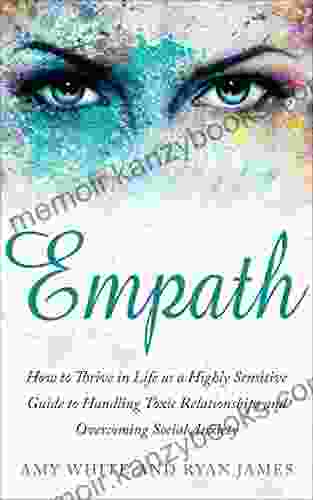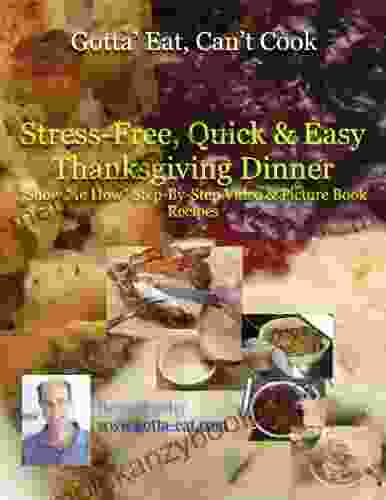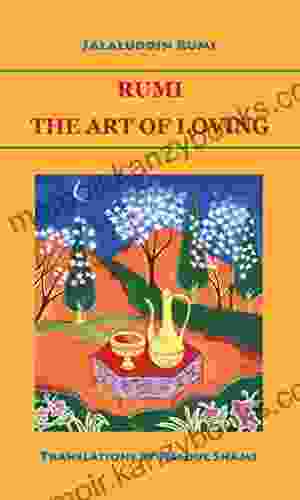How to Thrive in Life As Highly Sensitive Guide To Handling Toxic Relationships.

: Embracing Your Sensitivity as a Gift
Being a highly sensitive person (HSP) is a unique and often misunderstood trait. HSPs possess a heightened sensitivity to external stimuli, emotions, and environments. While this sensitivity can bring profound empathy and intuition, it can also be overwhelming in the face of toxicity and emotional abuse.
4.3 out of 5
| Language | : | English |
| File size | : | 3489 KB |
| Text-to-Speech | : | Enabled |
| Screen Reader | : | Supported |
| Enhanced typesetting | : | Enabled |
| Word Wise | : | Enabled |
| Print length | : | 58 pages |
| Lending | : | Enabled |
In this comprehensive guide, we will explore the challenges and opportunities faced by HSPs in navigating toxic relationships. You will discover powerful strategies to protect your well-being, set healthy boundaries, and cultivate fulfilling connections.
Chapter 1: Understanding the Highly Sensitive Person
Characteristics of HSPs
- Deeply affected by sensory input (e.g., noise, crowds, bright lights)
- Empathetic and compassionate
- Highly intuitive and perceptive
- Prone to overstimulation and emotional overwhelm
HSPs and Relationships
HSPs often have a strong desire for connection but can struggle in relationships that lack understanding and empathy. They may be more sensitive to criticism, rejection, and toxic behaviors.
Chapter 2: Recognizing Toxic Relationships
Red Flags of Toxicity
- Constant criticism or belittling
- Emotional manipulation or gaslighting
- Attempts to control or isolate you
- Violation of boundaries
- Physical or emotional abuse
The Impact of Toxicity on HSPs
Exposure to toxic relationships can have a devastating impact on HSPs, leading to:
- Emotional distress and anxiety
- Self-doubt and low self-esteem
- Chronic stress and fatigue
- Depression and suicidal thoughts
Chapter 3: Setting Boundaries for Self-Protection
The Importance of Boundaries
Boundaries are essential for protecting your physical, emotional, and mental well-being. They define what you are willing to accept and tolerate in your relationships.
Types of Boundaries
- Physical boundaries
- Emotional boundaries
- Time boundaries
- Communication boundaries
Communicating Boundaries to Others
Communicating your boundaries clearly and assertively is crucial. Use "I" statements, be specific, and enforce consequences when boundaries are violated.
Chapter 4: Navigating Conflict and Assertiveness
Conflict Resolution for HSPs
HSPs may find conflict particularly challenging. However, it is important to approach disagreements with empathy and assertiveness.
Assertive Communication Techniques
- Use "I" statements
- Stay calm and respectful
- Focus on the issue, not the person
- Set clear expectations
Finding Support and Validation
Building a supportive network is vital for HSPs. Seek professional help from therapists or counselors who understand your sensitivity. Connect with other HSPs through support groups or online forums.
Chapter 5: Building Fulfilling Relationships
Qualities to Look for in Healthy Relationships
- Mutual respect and understanding
- Empathy and emotional support
- Clear and healthy boundaries
- Shared values and interests
Tips for Building Healthy Relationships as an HSP
- Communicate your needs and sensitivities
- Surround yourself with positive and supportive people
- Practice self-care and prioritize your well-being
- Seek professional help when needed
: Embracing Your Strength as an HSP
Being a highly sensitive person is not a weakness but a unique gift. By understanding your sensitivity, setting healthy boundaries, and cultivating nurturing relationships, you can thrive in life. Remember, you are not alone, and with the right support and strategies, you can overcome the challenges and embrace the beauty of your sensitivity.
4.3 out of 5
| Language | : | English |
| File size | : | 3489 KB |
| Text-to-Speech | : | Enabled |
| Screen Reader | : | Supported |
| Enhanced typesetting | : | Enabled |
| Word Wise | : | Enabled |
| Print length | : | 58 pages |
| Lending | : | Enabled |
Do you want to contribute by writing guest posts on this blog?
Please contact us and send us a resume of previous articles that you have written.
 Book
Book Novel
Novel Page
Page Chapter
Chapter Text
Text Story
Story Genre
Genre Reader
Reader Library
Library Paperback
Paperback E-book
E-book Magazine
Magazine Newspaper
Newspaper Paragraph
Paragraph Sentence
Sentence Bookmark
Bookmark Shelf
Shelf Glossary
Glossary Bibliography
Bibliography Foreword
Foreword Preface
Preface Synopsis
Synopsis Annotation
Annotation Footnote
Footnote Manuscript
Manuscript Scroll
Scroll Codex
Codex Tome
Tome Bestseller
Bestseller Classics
Classics Library card
Library card Narrative
Narrative Biography
Biography Autobiography
Autobiography Memoir
Memoir Reference
Reference Encyclopedia
Encyclopedia Ana Sortun
Ana Sortun Amy Williams
Amy Williams Andrea Duclos
Andrea Duclos American Psychological Association
American Psychological Association Jacob Riyeff
Jacob Riyeff Ton Viet Ta
Ton Viet Ta Amy Green
Amy Green Amy Curran Baker
Amy Curran Baker Amelia Simons
Amelia Simons Amy B Scher
Amy B Scher Virginia Willis
Virginia Willis Rebecca Henry
Rebecca Henry Mia Ross
Mia Ross Carlo Petrini
Carlo Petrini Amy Vogel Fung
Amy Vogel Fung Serge King
Serge King Fred Plotkin
Fred Plotkin Andrea Gonzalez
Andrea Gonzalez Danielle Solon
Danielle Solon Jason Dollar
Jason Dollar
Light bulbAdvertise smarter! Our strategic ad space ensures maximum exposure. Reserve your spot today!

 Greg FosterEssential Living Aromatherapy Recipes For Health And Home: Unlock the Healing...
Greg FosterEssential Living Aromatherapy Recipes For Health And Home: Unlock the Healing... Robin PowellFollow ·14.9k
Robin PowellFollow ·14.9k Easton PowellFollow ·5.6k
Easton PowellFollow ·5.6k Italo CalvinoFollow ·3.2k
Italo CalvinoFollow ·3.2k Samuel BeckettFollow ·11k
Samuel BeckettFollow ·11k Jace MitchellFollow ·12.6k
Jace MitchellFollow ·12.6k Davion PowellFollow ·13.2k
Davion PowellFollow ·13.2k Pete BlairFollow ·14.5k
Pete BlairFollow ·14.5k Virginia WoolfFollow ·12.7k
Virginia WoolfFollow ·12.7k
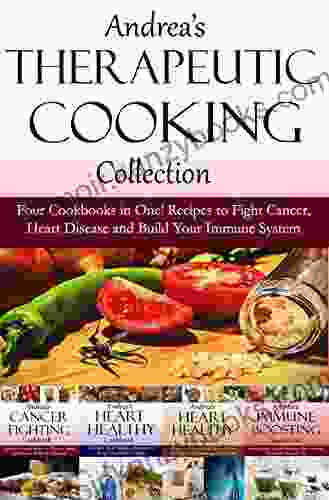
 Miguel Nelson
Miguel NelsonFour Cookbooks In One: Recipes To Fight Cancer, Heart...
Looking for a healthy way...
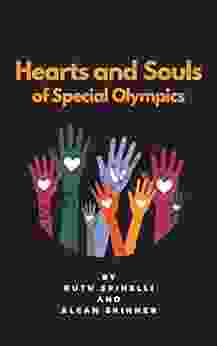
 Marcus Bell
Marcus BellHearts and Souls: Exploring the Lives and Legacies of...
The Special Olympics movement has been a...

 Tony Carter
Tony CarterDiagnosed With Breast Cancer: Navigating Life After the...
A breast cancer diagnosis can be a...

 Joe Simmons
Joe SimmonsLiddypool: The Stories and Interviews – A Literary...
In the realm of...

 Jett Powell
Jett PowellBreakfast for Boneheads: 66 Breakfast Recipes for Lazy...
Are you tired of eating the...
4.3 out of 5
| Language | : | English |
| File size | : | 3489 KB |
| Text-to-Speech | : | Enabled |
| Screen Reader | : | Supported |
| Enhanced typesetting | : | Enabled |
| Word Wise | : | Enabled |
| Print length | : | 58 pages |
| Lending | : | Enabled |


